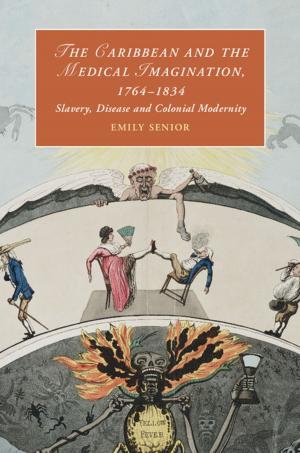The Precolonial State in West Africa
Building Power in Dahomey
Nonfiction, Social & Cultural Studies, Social Science, Archaeology, History| Author: | J. Cameron Monroe | ISBN: | 9781139949361 |
| Publisher: | Cambridge University Press | Publication: | June 9, 2014 |
| Imprint: | Cambridge University Press | Language: | English |
| Author: | J. Cameron Monroe |
| ISBN: | 9781139949361 |
| Publisher: | Cambridge University Press |
| Publication: | June 9, 2014 |
| Imprint: | Cambridge University Press |
| Language: | English |
This volume incorporates historical, ethnographic, art historical, and archaeological sources to examine the relationship between the production of space and political order in the West African Kingdom of Dahomey during the tumultuous Atlantic Era. Dahomey, situated in the modern Republic of Bénin, emerged in this period as one of the principal agents in the trans-Atlantic slave trade and an exemplar of West African state formation. Drawing from eight years of ethnohistorical and archaeological fieldwork in the Republic of Bénin, the central thesis of this volume is that Dahomean kings used spatial tactics to project power and mitigate dissent across their territories. J. Cameron Monroe argues that these tactics enabled kings to economically exploit their subjects and to promote a sense of the historical and natural inevitability of royal power.
This volume incorporates historical, ethnographic, art historical, and archaeological sources to examine the relationship between the production of space and political order in the West African Kingdom of Dahomey during the tumultuous Atlantic Era. Dahomey, situated in the modern Republic of Bénin, emerged in this period as one of the principal agents in the trans-Atlantic slave trade and an exemplar of West African state formation. Drawing from eight years of ethnohistorical and archaeological fieldwork in the Republic of Bénin, the central thesis of this volume is that Dahomean kings used spatial tactics to project power and mitigate dissent across their territories. J. Cameron Monroe argues that these tactics enabled kings to economically exploit their subjects and to promote a sense of the historical and natural inevitability of royal power.















